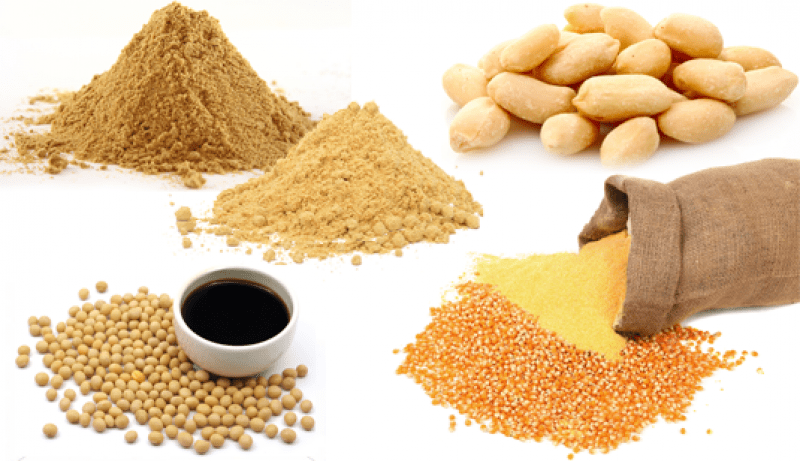
The global hydrolyzed vegetable protein market is predicted to reach a USD 1,444 million valuations in 2023. Between 2023 and 2033, it is set to accelerate at a robust 7.2% CAGR. This should culminate in a market valuation of USD 2,886 million in 2033.
Hydrolyzed vegetable protein is a product of the application of hydrolysis on sources of plant protein. It has the capacity to add a meaty taste to food products without the use of animal meat. Its use is common in the global food & beverage industry, and is likely to soar in the coming years.
The rising use of hydrolyzed vegetable protein is a result of a shift in preferences. Before hydrolyzed plant protein became popular, animal protein was the number one choice. However, in recent years, animal proteins have been criticized owing to their negative effects on health.
Proteins sourced of plants lack the harmful compounds of animal protein products such as saturated fat and cholesterol. This is the prominent factor driving the acceleration of the market for hydrolyzed vegetable protein. Increasing adoption of veganism and vegetarianism are also helping the development of the market.
The United States, the United Kingdom, and China are set to establish themselves as the leading markets for hydrolyzed vegetable protein. Across these countries, hydrolyzed vegetable protein companies are making their presence felt. New companies are also emerging and providing stiff competition to the established names.
According to Future Market Insights (FMI), granules are likely to emerge as the dominant segment on the basis of form. Based on product type, soy protein is set to generate significant demand owing to its benefits over other plant-based protein sources. In terms of distribution channel, FMI expects the direct channel to dominate the market between 2023 and 2033.
Access the full report for detailed market trends. https://www.futuremarketinsights.com/reports/hydrolysed-vegetable-protein-market
Key Takeaways from the Report:
- Between 2018 and 2022, the market for hydrolyzed vegetable protein progressed at a CAGR of 6.8%.
- Hydrolyzed vegetable protein sales reached a valuation of US$ 1,341.4 million in 2022.
- The United States hydrolyzed vegetable protein market is set to expand at a steady CAGR of 6.2% between 2023 and 2033.
- Soy protein is poised to dominate the market based on product type with a 32.9% share.
- Direct distribution channels comprise of a 54.6% share in the global market.
“The only thing likely to hold back the acceleration of the market is the lack of studies regarding the potential of hydrolyzed vegetable protein to trigger allergies. If a conclusive study does prove that hydrolyzed vegetable protein does not trigger allergies, it would provide a substantial boost to the market.”-Says an FMI Analyst
Who is Winning?
Innovation in marketing is dominating the competitive landscape in the market for hydrolyzed vegetable protein. Players are also focusing on new product launches and acquisitions to strengthen their grasp on the global market.
Ajinomoto Co., Inc., Glanbia Plc, Tate & Lyle Plc., Cargill Inc., Puris Proteins LLC, DuPont de Nemours, Inc., Scoular, Fuji Oil Holdings, Inc., Innova Flavors, Wilmer International Limited, Axiom Foods, Inc., AMCO Proteins, Burcon NutraScience Corporation, and Roquette Fréres are the leading players in the market for hydrolyzed vegetable protein.
Get More Valuable Insights
Future Market Insights, in its new offering, provides an unbiased analysis of the global hydrolyzed vegetable protein market, presenting historical demand data (2018 to 2022) and forecast statistics for the period from 2023 to 2033. The study divulges compelling insights on the hydrolyzed vegetable protein market based on form (chunks, slice, flakes, granules), product type (soy protein, wheat protein, pea protein, rice protein, chia Protein, flax protein, corn protein), end use (household, commercial, industry, animal feed), and distribution channel (direct, indirect) across seven regions.
Hydrolyzed Vegetable Protein Market by Category
By Form:
- Chunks
- Slice
- Flakes
- Granules
By Product Type:
- Soy Protein
- Wheat Protein
- Pea Protein
- Rice Protein
- Chia Protein
- Flax Protein
- Corn protein
By End Use:
- Household
- Commercial
- Industry
- Food Industry
- Snacks & Functional Bars
- Ready Meals
- Sports Nutrition
- Clinical Nutrition
- Baby Food
- Meat Analogues/Meat Extenders
- Animal Feed
By Distribution Channel:
- Direct
- Indirect
- Hypermarket
- Convenience Stores
- Traditional Store
- Online Retails
About Future Market Insights (FMI)
Future Market Insights, Inc. (ESOMAR certified, recipient of the Stevie Award, and a member of the Greater New York Chamber of Commerce) offers profound insights into the driving factors that are boosting demand in the market. FMI stands as the leading global provider of market intelligence, advisory services, consulting, and events for the Packaging, Food and Beverage, Consumer Technology, Healthcare, Industrial, and Chemicals markets. With a vast team of over 400 analysts worldwide, FMI provides global, regional, and local expertise on diverse domains and industry trends across more than 110 countries.
Contact Us:
Future Market Insights Inc.
Christiana Corporate, 200 Continental Drive,
Suite 401, Newark, Delaware – 19713, USA
T: +1-347-918-3531
For Sales Enquiries: sales@futuremarketinsights.com
Website: https://www.futuremarketinsights.com
LinkedIn| Twitter| Blogs | YouTube
